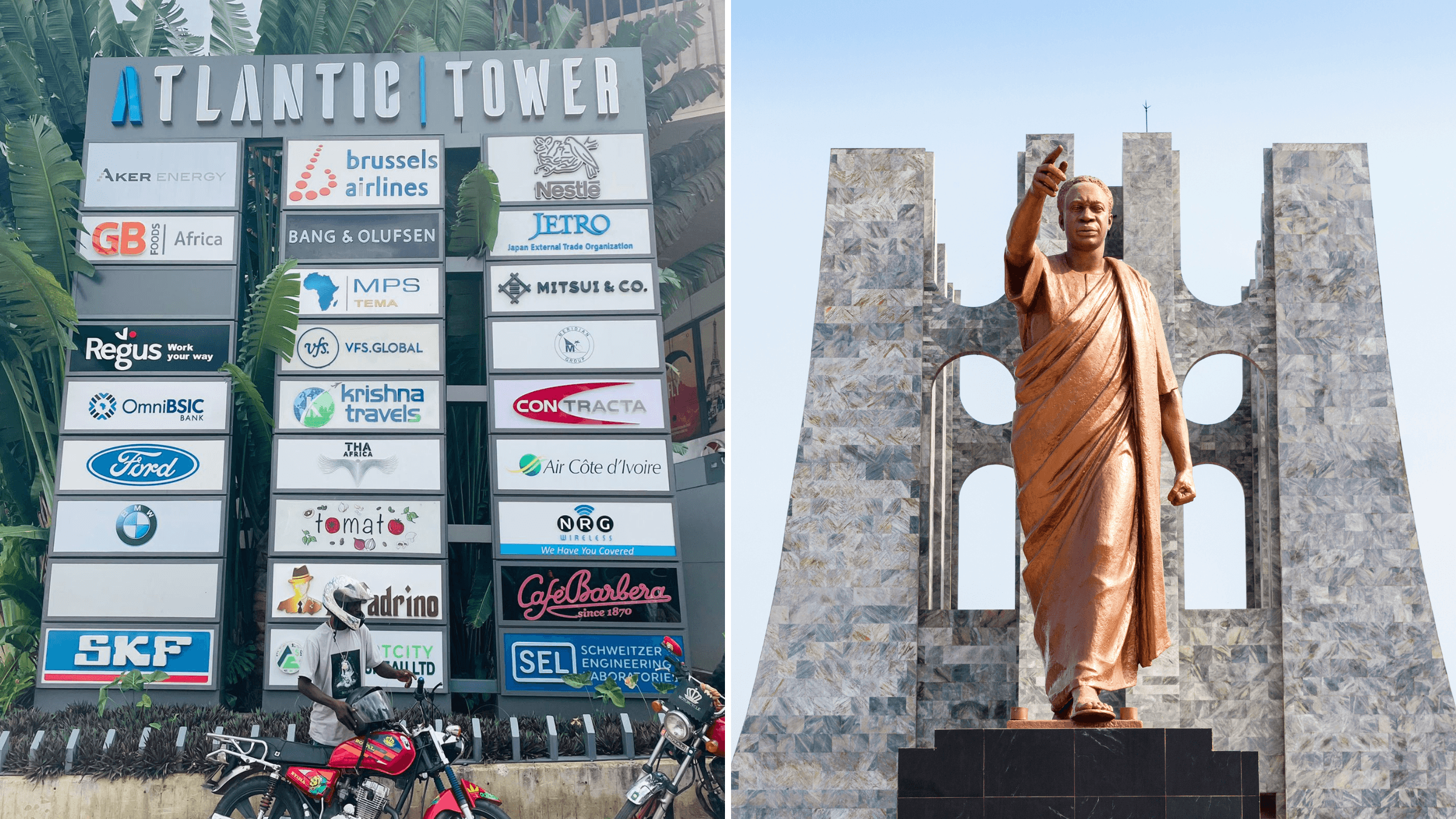A couple of months ago I travelled to Ghana for a brilliant business trip. Visiting longstanding client Vlisco, as well as other friends of MBS in West Africa, it was fascinating to spend time in a region in which I’ve developed a strong interest in over several years of search assignments.
Against a backdrop of high inflation, and record-breaking interest rate hikes that are creating a challenging macroeconomic environment, it was particularly stimulating to discuss the shifting West African talent landscape with executives from across the region. Historically, international businesses relied on expatriate talent to lead expansion into local markets, but today – positively – this is changing.
In this column, I explore why this shift is happening, the many benefits of hiring and retaining local executives, and how companies can develop and execute talent strategies in West Africa.
Much has been written about the pace of development across Africa. According to the UN, by 2050, a quarter of all people globally will be African, and more than eighty percent of this population growth will occur in cities, making Africa the fastest-urbanising region in the world.
Specifically, much of the continent’s economic growth is concentrated in the west: Nigeria, Ghana, and Côte d’Ivoire account for approximately a quarter of Africa’s GDP. For domestic and international companies, this presents an exciting opportunity to serve growing populations with increasing disposable income, and, as a result, the past few years have seen many businesses move into West Africa or expand their operations in the region.

Historically, as in other emerging markets, corporates seeking executives to lead businesses and critical functions in West Africa would typically parachute in expatriates from Europe or the USA. The pervasive legacy of colonialism means that West African economies have faced structural challenges, and organisations seeking to expand came up against a perceived skills gap when sourcing talent.
But today, more and more businesses are placing local talent at the heart of expansion efforts. “We’ve seen it change in the last ten years or so,” commented Fatoumata Doro, Managing Director of Vlisco Ghana, “when I started my career with P&G, most of the senior directors were non-African. But if you look today, there’s been a significant shift towards local talent.”
“When I started my career with P&G, most of the senior directors were non-African. But if you look today, there’s been a significant shift towards local talent.” – Fatoumata Doro, MD at Vlisco Ghana
There are several clear benefits to hiring local talent. Fundamentally, and especially for consumer-facing businesses, appointing local executives enables an unparalleled understanding of local consumers. Leaders from local markets can ensure product, brand and messaging resonate with a domestic consumer base.
Fatoumata shared a compelling example of this: “when Covid hit, the team locally launched a fabric called ‘This Too Shall Pass’, which is a phrase very often used in Ghana during difficult times,” she explained. “The fabric became one of our best-selling lines and was even worn by the President during an address about the Covid-19 response. This only would have been achieved by a local team. They get the references and understand the customers.”

International companies operating in West Africa and other emerging markets also face the challenge of adapting to local market dynamics. Over 90% of grocery trade in West Africa is informal, with the sector dominated by small-scale ‘mom and pop’ shops, posing a radically different retail landscape for FMCG executives to grapple with. As such, appointing a local leader who understands market patterns and trends can be invaluable.
As the economy has developed, so has the talent conversation. As one executive told me in Accra: “there was a time when local talent would be specifically locally-oriented. Now, local leaders are thinking well beyond their immediate markets.”
Indeed, West African leaders are increasingly spending time in corporate HQs and other international markets, gaining global breadth and developing professionally before returning to apply their learnings. Businesses including Reckitt, Procter & Gamble and L’Oréal all employ this strategy, sending high potential West African executives on secondments to Europe or the UAE.
In many cases, providing international secondments has a multi-generational impact. “Many executives move abroad not only for work, but to provide education opportunities for their families,” one executive told me. “When the children of senior leaders finish university in Europe, they often come back to West Africa, looking to contribute to their home country.”
“When the children of senior leaders finish university in Europe, they often come back to West Africa, looking to contribute to their home country.”
Indeed, tapping into the West African diaspora is central to many talent strategies. A HR executive told me that their company held a career fair in the US, designed to entice West Africans back to the region. Interestingly, several executives commented that decisions to return to West Africa can be motivated by both altruistic desires and career ambitions.

This shift won’t happen overnight, and the most forward-looking businesses are adopting a long-term approach and making local leadership a requirement in top-level succession planning. “You have to be intentional about it,” commented Fatoumata. “About identifying, engaging and training local executives and making it clear that you want them as part of the future management team.” Ecommerce giant Jumia, one of Africa’s largest three tech unicorns, has an interesting leadership structure: most of its key executive committee roles are based in UAE, rather than in Africa, with its country CEOs based in home markets. As the talent pool becomes more competitive, it will be interesting to see if Jumia changes this approach.
Role modelling is a critical piece of the puzzle. As one leader told me: “local leadership helps drive motivation for those in lower roles,” and it was inspiring to hear the impact that Fatoumata has had as the first black woman to lead Vlisco in Ghana.
The move towards local talent is a critical part of ensuring long-term, sustainable growth in West Africa. Take the cocoa industry, for example. As the first President of newly independent Ghana in the 1960s, Kwame Nkrumah dreamed of transforming the economy, and moving away from extractive colonial capitalism by building the Volta Dam.
But this dream has not yet been realised: Ghana is the world’s second largest producer of cocoa, accounting for approximately 30% of total supply, but receives just 1.3% of the $130bn global chocolate industry. This is because Western chocolate manufacturers transform West African cocoa into highly profitable branded chocolate in Europe and the USA.
Clearly, there is a major commercial opportunity for local talent to transform this industry, and a range of exciting Ghanaian chocolate companies are disrupting the market (having tasted local brand Golden Tree Kingsbite I can attest to the quality of the Ghanaian chocolate!) Looking ahead, economists agree that having highly trained local management will be critical to this sort of economic advancement.
Encouragingly, we’ve recently seen major progress in sector-leading organisations, with significant ramifications on the regional talent landscape. In 2019, Vodafone Ghana hired Patricia Obo-Nai as its first-ever Ghanaian CEO and the second female to hold the post, and in November 2021, Mokutima Ajileye became Managing Director of Procter & Gamble Nigeria, the first woman and the first Nigerian to step into the role.
This shift to the talent landscape is happening across emerging markets globally. At MBS, we believe that businesses should hire executives who are best positioned to drive growth in dynamic and varied local markets. I’m excited to see the impact that local leaders have on consumer-facing companies around the world – and I’d be curious to hear your thoughts on this important topic.








